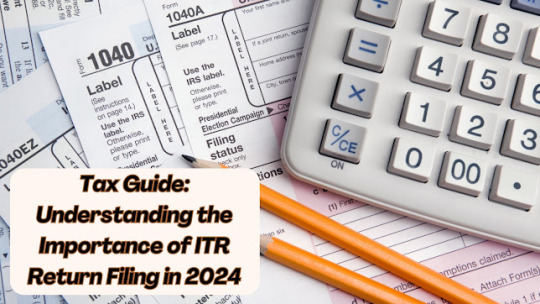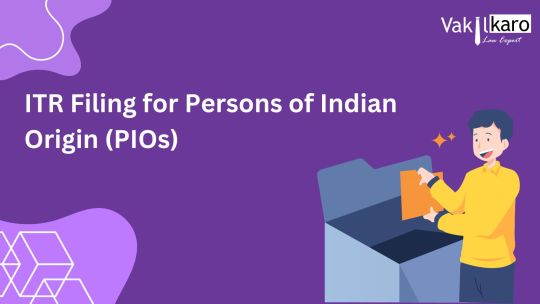#ITR Filing for NRIs
Photo

(via Tips to NRIs for ITR Filing - Exemptions | Deductions)
#Income Tax#Income Tax Return#Income Tax Return Filing#Income Tax Return Filing Online#ITR Filing#ITR Filing for NRIs#Filing ITR by NRIs#ITR Filing Tips for NRIs
0 notes
Text
Types of Business entitiy models used in business
Have you always wanted to start a business and know more about the existing legal structures in India for the same? If yes, you have come to the right place. Here, we give you the top 5 business entity models currently in practice in India. Before registering your venture in the country, you may want to understand all these 5 structures thoroughly. This way, you can rest assured knowing that you have completed all the formalities, as the Government requires.
Sole Proprietorship Firm
Some of the key features of this business model are:
Entire control and management lies with one person
Great for setting up for a single person, producing goods that involve showcasing one’s personal skills or talents (making jewels, handicrafts, etc.)
Onus of running the business is on one person only
Only one person bears the losses and enjoys the profits
Limited capital requirement and few legal formalities to fulfill
There are quite a few professional and best business consultants in Delhi, who can help you more with the guidelines and support for setting up a sole proprietorship firm, if you are interested.
Partnership Firm
The features of a partnership firm are:
Started with a partnership deal between two people or more
Maximum no. of partners limited to 10 for banking business and 20 for other businesses
Ratio of sharing profits and losses are agreed initially in the contract termed, Partnership Deed
Not compulsory to register this firm
Ideal for small retail & wholesale businesses, small-sized manufacturing firms and more
Always look for the best business advisory firm in India for the right guidance on starting a business in India.
Private Limited Company
Some of the important points related to this business model are:
Ideal for Small or medium-sized businesses
of shareholders limited to 50
Can have external or foreign investors
Cannot invite the public to subscribe to the shares
Considered as a separate legal entity
Limited Liability Partnerships (LLP)
Some features of this model are:
New and flexible business model as an alternative to partnership firms
Perfect combination of unlimited personal liability and government regulations
No cap on minimum capital requirement or maximum number of owners
Public Limited Company
Here are the features of this model:
Ideal for large businesses
Can raise money from the public
No cap on the maximum no. of shareholders, but minimum no. of shareholders fixed at 7
Liability of shareholders limited to the extent of the value of their shares
Here, we have given you only a brief idea of India’s top business entity models. If you want to know more details on the legalities of these structures, or more about consulting businesses globally, you can visit here for all the information you require.
#business#businessconsultation#wealth management#financial services#nri investors#investment management#income tax#itr filing
5 notes
·
View notes
Text
What are the consequences of not filing my ITR before the deadline?
Failing to adhere to the deadline for filing your Income Tax Return (ITR) can result in various significant consequences, potentially affecting your financial standing and legal compliance:
1. Penalty Imposition: The Income Tax Act, under Section 234F, mandates a penalty for late filing. This penalty amount varies based on factors such as your total income, the extent of delay, and the tax liability. The penalty can escalate from a nominal sum to as much as ₹10,000 or more, depending on the severity of the delay.
2. Accrual of Interest: Delays in filing your ITR may subject you to interest charges as per Section 234A of the Income Tax Act. Interest is levied on any outstanding tax dues for the period of delay in filing. The interest rate is predefined and compounded, further escalating your financial burden.
3. Delayed Refund Disbursement: A tardy submission of your ITR can result in a delay in receiving any tax refund owed to you by the Income Tax Department. This delay could affect your financial planning and liquidity, causing inconvenience and potential financial strain.
4. Loss of Losses Carryforward Benefits: If you've incurred losses during the financial year and intend to carry them forward to offset against future income, timely filing of your ITR is paramount. Failure to file within the stipulated timeframe may lead to restrictions or disallowances on carrying forward certain types of losses, thereby impacting your tax planning strategies.
5. Potential Legal Ramifications: In cases of persistent non-compliance or egregious delays, the Income Tax Department retains the authority to pursue legal action. This may involve imposing fines, penalties, or even initiating prosecution proceedings under the relevant provisions of the Income Tax Act. Legal repercussions can significantly impact your financial stability and reputation.
To circumvent these adverse outcomes, it's imperative to prioritize the timely submission of your Income Tax Return, adhering to the deadlines specified by the Income Tax Department. Typically, for most taxpayers in India, the due date for filing ITR is July 31st of the assessment year. By ensuring timely compliance, you mitigate the risk of incurring penalties, interest charges, and other unfavorable consequences, thereby maintaining financial prudence and regulatory adherence.
#ITR#gst services#itr filing#business#self empowerment#self employed#taxes#gst#NRI tax return#capital gains tax#sale of property
0 notes
Text

The PAN card is a fundamental document for taxpayers in India, playing a crucial role in the ITR filing process. It not only serves as a means of identification but also aids in preventing tax evasion and ensuring transparency in financial transactions. Therefore, it is imperative for individuals and entities to obtain and maintain an active PAN card for their financial activities. Read More
#itr filing#income tax return filing#benefits of filing income tax return#nri income tax return filing in india#benefits of itr filing in hindi#use of pan card in hindi#how to file itr in case of no income#income tax filing#benefits of itr filing#income tax filing in tamil#itr 1 filing online 2022-23#nri tax in india#inoperative pan card itr filing#nri tax filing india#how to register for efiling#tax filing school
0 notes
Text
Essential Tips for NRIs While Filing Income Tax Returns in India
Esse
Is NRIs need to pay income tax in India? Of course, yes! Non-Resident Indians, also known as NRIs, are obligated to pay income tax in India on any income they have earned there. The taxes system applies to both NRIs and residents of India.
According to the Income Tax Act, any income earned or raised in India is subject to taxation under the Indian taxation system. As a result, if you are an NRI, you must understand the NRI Income Tax's features to determine the taxes you must pay.
Here you can see the essential tips for NRIs while filing income tax returns in India:
Determine the residential status
The first step is figuring out your residential status about the current financial year. It could be challenging if you recently moved to a different country.
According to Indian Income Tax Act, you need to pay tax for your residency status. You will be regarded as an NRI if you have resided abroad for more than 182 days. You will also need to file an NRI income tax return.
Select the Right ITR Return Form
To lessen the burden of compliance for Indian taxpayers, the Indian government established the ITR-1 Form. NRIs may also file a more straightforward ITR-1 tax return. Individuals who get income above the appropriate amount from wages, a single-family home, or other sources like interest may also file an ITR-1.
If you don't fit into the ITR-1 category and have taxable income from more than one residential property, you should file an ITR-2. Depending on the needs one should choose the ITR form.
File a return to claim refund
Remember that you must file a tax return in order to receive a refund of any overpaid taxes. This could happen if more tax was withheld at the source than was necessary.
As an example, if your taxable income for the year was less than Rs 1.8 lakh but the bank deducted tax at source from your interest payment, you can request a refund by submitting your tax return.
The best professional will guide you and make your NRI income tax return hassle-free.
Disclosing Foreign Bank Account is Optional
Non-residents and non-citizens of India are not required to declare information about their foreign bank account in their ITR if they do not want a tax refund.
Non-residents who submit an ITR and want a tax refund but do not have a bank account in India must provide information about their most recent foreign version for their refund to be issued.
Furthermore, NRIS don't need to disclose data in their ITR about assets and financial interests held outside of India.
Ending thoughts
Hire NRI taxation services in Chandigarh, who will file the income tax returns on time to avoid imposing hefty fines. When filing an ITR, NRIs must provide all required information in the most acceptable manner and before the deadline. Read the above mentioned points and get to know about tips for NRIs while filing income tax returns in India.
ntial Tips for NRIs While Filing Income Tax Returns in India
1 note
·
View note
Photo


RBG Consultants can provide support in matters related to inheritance, wills and trusts, and estate planning for NRIs. They can also assist with the acquisition and sale of property in India, and help with the transfer of funds to overseas accounts.
Address: Office No: 204, SECOND FLOOR, PLOT NO. 2, AGGARWAL TOWER, SECTOR 5, DWARKA, NEW DELHI-110075
Visit now:https://www.rbgconsultant.com/
Contact us: 9810166145
0 notes
Text
Tax Guide: Understanding the Importance of ITR Return Filing in 2024
Unlock financial clarity and compliance with our Tax Guide: Navigating the Crucial Role of ITR Return Filing in 2024.

Introduction to Income Tax Return Filing
As we approach the year 2024, it's crucial for individuals to understand the importance of filing their income tax returns (ITR). The process of ITR return filing can be daunting, but it's a crucial step in ensuring compliance with the tax laws and regulations. In this comprehensive guide, I will walk you through the various aspects of ITR return filing, including the benefits of hiring a tax consultant, the common mistakes to avoid, and the role of income tax consultants in the process.
Importance of Filing Income Tax Return
Filing an income tax return is not just a legal requirement, but it also offers several benefits to individuals. By submitting your ITR, you can ensure that you are paying the correct amount of taxes and avoid any penalties or interest charges. Additionally, filing your ITR allows you to claim various deductions and exemptions, which can help reduce your tax liability. Furthermore, a properly filed ITR can also be used as a proof of income, which may be required for various financial transactions, such as loan applications or visa applications.
Benefits of Hiring a Tax Consultant for ITR Return Filing
While it's possible to file your income tax return for individual, hiring a tax consultant can provide numerous advantages. Tax consultants are well-versed in the latest tax laws and regulations, and they can help you navigate the complex process of ITR return filing. They can also identify potential deductions and exemptions that you may be eligible for, ultimately helping you maximize your tax savings. Additionally, tax consultants can handle the entire ITR return filing process on your behalf, freeing up your time and reducing the risk of errors or omissions.

Understanding the Income Tax Return Filing Process for Individuals
The ITR return filing process for individuals typically involves several steps, including gathering all the necessary documents, calculating your taxable income, determining your tax liability, and submitting the required forms. It's essential to familiarize yourself with the various ITR forms, such as ITR-1, ITR-2, or ITR-3, and ensure that you are using the correct form based on your specific financial situation.
Common Mistakes to Avoid While Filing Income Tax Return
One of the most common mistakes made by individuals during the ITR return filing service is the incorrect calculation of taxable income. This can lead to underpayment or overpayment of taxes, both of which can result in penalties or interest charges. Additionally, failing to claim eligible deductions and exemptions, or missing the filing deadline, are also common mistakes that should be avoided.
NRI Income Tax Return Filing
For non-resident Indians (NRIs), the ITR return filing process can be even more complex. NRIs are required to comply with specific tax laws and regulations, and they may need to navigate additional complexities, such as the taxation of foreign income or the treatment of assets held abroad. Seeking the guidance of a tax consultant who specializes in NRI income tax matters can be invaluable in ensuring a smooth and accurate ITR return filing process.
Choosing the Right ITR Return Filing Service
When it comes to ITR return filing, there are several service providers available, ranging from online platforms to traditional tax consultants. It's important to carefully evaluate the options and choose a service provider that can meet your specific needs. Factors to consider include the service provider's expertise, reputation, fees, and the level of support and guidance they offer throughout the process.
How to Find a Reliable Tax Consultant for ITR Return Filing
Finding a reliable tax consultant can be a daunting task, but it's crucial to ensure that your ITR return filing is handled correctly. Look for tax consultants who have a proven track record of success, are well-versed in the latest tax laws and regulations, and offer personalized service and support. You can also ask for referrals from friends, family, or colleagues who have had positive experiences with tax consultants.
The Role of Income Tax Consultants in ITR Return Filing
Income tax consultants play a vital role in the ITR return filing process. They can help you understand the various tax laws and regulations, identify potential deductions and exemptions, and ensure that your ITR is filed accurately and on time. They can also handle the entire process on your behalf, from gathering the necessary documents to submitting the final forms, allowing you to focus on your other priorities.
Conclusion: Why ITR Return Filing is Crucial in 2024
In conclusion, the importance of ITR return filing cannot be overstated, especially as we approach the year 2024. By understanding the process, avoiding common mistakes, and seeking the guidance from a top tax consultants, individuals can ensure that their tax obligations are met and their financial well-being is protected. Remember, Tax Dunia is here to assist you with all your ITR return filing needs, so don't hesitate to reach out for professional support and guidance.
0 notes
Text
Home Loan In Bangalore
Home loans are usually offered @ 8.30% p.a. onwards for loan amounts of up to 90% of property cost and for tenures of up to 30 years. Most Banks/HFCs offer special home loan schemes for rural housing, affordable housing and to applicants having minimum income documents. They also provide home loan balance transfer facility to existing home loan borrowers of other lenders at lower interest rates.
Eligibility Criteria of Home Loan in Bangalore
The applicant should be an Indian Resident, NRI, PIO. Some banks and HFCs also offer home loans to NRI and PIO applicants, branded as NRI Home Loan.
Minimum Age- 21 years; Maximum Age- Up to 70 years when loan matures
Job Profile: Salaried (government and corporate employees)/Self-Employed Professional (Doctors, CS, lawyers, CA, architect, consultant, engineer)/Self-Employed Non-Professional (contractor, trader, commission agent)
Work experience: At least 3 years
CIBIL/Credit score should be 750 and above for increased chances of availing home loan and at lower interest rates
Documents Required for Getting a Home Loan in Bangalore
The primary documents required to apply for a housing loan in Bangalore are:
Application form with a duly signed photograph of the applicant
Banking details
Identity proof like PAN, Aadhaar, Driving license, Passport, Voter ID
Age proof like PAN, Aadhaar, Driving license, Passport, Voter ID
Signature proof like PAN, Passport
Address proof like Aadhaar, Driving license, Passport, Voter ID
Evidence of educational qualification/ proof of business existence
last 3 months’ salary slips (for salaried person)
Last 3 years’ balance sheet, and audited P/L statement (for self-employed person)
Last 1 years’ filed ITR for salaried professionals
Relationship proof
How to Apply for a Home Loan Online in Bangalore?
Home loan application has now become a cakewalk with all online facilities. You can easily apply for home loans in Bangalore online by following these simple steps:
1. Visit Kotak Mahindra Bank’s official website
2. Enter your age and mobile number to log in
3. Go to the loan application section
4. Fill out your basic financial details on the application form to check your eligibility
5. Customize your loan amount and tenure using the EMI calculator.
6. Upload the required documents
7. Get sanctioned, provided all the details you fill in and the documents are accurate.
Home loans are usually offered @ 8.30% p.a. onwards for loan amounts of up to 90% of property cost and for tenures of up to 30 years. Most Banks/HFCs offer special home loan schemes for rural housing, affordable housing and to applicants having minimum income documents. They also provide home loan balance transfer facility to existing home loan borrowers of other lenders at lower interest rates.
Eligibility Criteria of Home Loan in Bangalore
The applicant should be an Indian Resident, NRI, PIO. Some banks and HFCs also offer home loans to NRI and PIO applicants, branded as NRI Home Loan.
Minimum Age- 21 years; Maximum Age- Up to 70 years when loan matures
Job Profile: Salaried (government and corporate employees)/Self-Employed Professional (Doctors, CS, lawyers, CA, architect, consultant, engineer)/Self-Employed Non-Professional (contractor, trader, commission agent)
Work experience: At least 3 years
CIBIL/Credit score should be 750 and above for increased chances of availing home loan and at lower interest rates
Documents Required for Getting a Home Loan in Bangalore
The primary documents required to apply for a housing loan in Bangalore are:
Application form with a duly signed photograph of the applicant
Banking details
Identity proof like PAN, Aadhaar, Driving license, Passport, Voter ID
Age proof like PAN, Aadhaar, Driving license, Passport, Voter ID
Signature proof like PAN, Passport
Address proof like Aadhaar, Driving license, Passport, Voter ID
Evidence of educational qualification/ proof of business existence
last 3 months’ salary slips (for salaried person)
Last 3 years’ balance sheet, and audited P/L statement (for self-employed person)
Last 1 years’ filed ITR for salaried professionals
Relationship proof
How to Apply for a Home Loan Online in Bangalore?
Home loan application has now become a cakewalk with all online facilities. You can easily apply for home loans in Bangalore online by following these simple steps:
1. Visit Kotak Mahindra Bank’s official website
2. Enter your age and mobile number to log in
3. Go to the loan application section
4. Fill out your basic financial details on the application form to check your eligibility
5. Customize your loan amount and tenure using the EMI calculator.
6. Upload the required documents
7. Get sanctioned, provided all the details you fill in and the documents are accurate.
0 notes
Text
Gear Up for Your Dream Ride: Essential Documents for an ICICI Car Loan Application
Owning a car in India can bring immense freedom and convenience. But turning that dream into reality often requires financing. ICICI Bank, a leading financial institution, offers a variety of car loan options to make your automotive aspirations a reality. However, before cruising towards your new car, it's crucial to ensure you have the necessary documents for a smooth ICICI Car Loan application process.
This comprehensive guide equips you with the knowledge of essential documents required for an ICICI Car Loan application, ensuring you're well-prepared to navigate the process efficiently.
Understanding the Document Requirements
The specific documents required for your ICICI Car Loan application may vary slightly depending on your employment status (salaried, self-employed, or NRI) and the type of car you're financing (new or used). However, here's a breakdown of the most common documents you'll likely need:
Identity Proof:
Aadhaar Card: This is a mandatory document for all loan applicants in India.
PAN Card: Your Permanent Account Number (PAN) card is crucial for tax identification purposes.
Driving License/Passport: A valid driving license or passport serves as additional proof of identity.
Address Proof:
Utility Bills (Electricity, Water, Telephone): Recent utility bills (not older than 3 months) with your name and address are acceptable.
Ration Card/Voter ID Card: These documents can also serve as address proof.
Passport (for NRIs): If you're an NRI, your passport with your overseas address will be required.
Income Proof (Salaried Individuals):
Salary Slips: The last 3 months' salary slips showing your salary structure and deductions are essential.
Bank Statements: Recent bank statements (usually for the last 6 months) provide an overview of your income and expenses.
Form 16 (Latest): This income tax return form verifies your income declared to the government.
Income Proof (Self-Employed Individuals):
Business Proof: Documents like a shop establishment license or a copy of the company registration certificate demonstrate your business existence.
Income Tax Returns (ITRs): The last 2-3 years' ITRs along with audited financial statements showcase your business's financial health.
Bank Statements: Recent bank statements (personal and business accounts) for the last 6 months provide a snapshot of your financial transactions.
Car-Related Documents (if applicable):
Car Invoice (New Car): A copy of the car invoice issued by the dealership is required for a new car loan.
Registration Certificate (RC) (Used Car): The original Registration Certificate (RC) of the used car you intend to purchase is necessary.
Additional Documents (NRIs Only):
Proof of Employment/Income Source: Documents like your employment contract or salary slips from your foreign employer verify your income source abroad.
Proof of Residence (Overseas): Utility bills or bank statements from your country of residence provide proof of your overseas address.
Guarantor Documents (if applicable): If you're applying as an NRI with a guarantor, their identity proof, income proof, and address proof will be required.
Tips for a Streamlined Application Process:
Gather Documents Early: Starting early ensures you have all the necessary documents well before your application submission.
Maintain Order: Organize your documents neatly in a folder or file to facilitate easy verification by the bank.
Double-Check for Completeness: Ensure you have all the required documents and that the information is accurate and up-to-date.
Clear Copies: Submit clear and readable photocopies of all documents.
Conclusion
Having the necessary documents readily available streamlines your ICICI Car Loan application process and increases your chances of a swift loan approval. By understanding the required documents and following these tips, you can embark on your dream car journey with confidence. Remember, ICICI Bank offers a variety of car loan options, so explore their offerings and get ready to drive away in your dream car!
0 notes
Text
Introduction In the Indian financial landscape, PAN (Permanent Account Number) cards are vital for taxpayers, including Non-Resident Indians (NRIs). Recent regulatory updates have linked the status of PAN cards to Aadhaar, and the discontinuation of this linkage has led to some PAN holders' status changing from "Active" to "Inoperative." Nevertheless, NRIs can still use their inoperative PANs to file Income Tax Returns (ITR). This article will guide NRIs through the process of rectifying the "inoperative" status of their PAN cards.
#AccountsWritingandCompliance#RegulatoryComplianceforBusinessinIndia#TransferPricingReports#PayrollServicesinDelhi#BusinessSetupServiceinIndia#GstConsultancy&RegularCompliance#NriRelatedServices#NriTaxMatters
0 notes
Text
Navigating Tax Season: A Guide For NRIs in Income Tax Return Filing

Sometimes, it becomes a difficult journey for NRIs i.e. Non-Resident Indians to file the income tax return in India. But you can make this journey smooth with the help of right guidance & preparation. Here, in this comprehensive guide we will provide some essential tips for NRIs so that they can navigate the IR Filing process effectively:
Some ITR Filing Tips for NRIs
Understand Your Residential Status: NRIs must have to determine their residential status for tax purposes. NRIs have to pay tax in India on the basis of their residential status that depends on the number of days spent by them in India during the financial year.
Declare Global Income: If you are an NRI, then you have to declare your global income in India that includes the income that has been earned in abroad. It is essential to report all the sources of income accurately including income from salaries, rental properties, capital gains, interest, dividends, etc. to avoid the penalties.
Familiarize Yourself with DTAA: NRIs can utilize the benefit of Double Taxation Avoidance Agreements (DTAA) that has been signed between India & other countries. Under this, you as an NRI can claim relief from double taxation by either claiming tax credit or opting for exemption on certain types of income.
Explore Tax Benefits: Under the Indian Income Tax Act, NRIs can claim deductions and exemptions to reduce their tax liability. NRIs can claim exemptions on certain incomes like long-term capital gains on specified investments.
File Timely Returns: Make sure that you file the Income Tax Returns on time to avoid penalties and interest. Usually, the due date for filing returns for NRIs is July 31st of the assessment year, but you should stay updated with any changes in deadlines.
Conclusion
NRIs can navigate the complexities of filing Income Tax Return easily and confidently by following the above mentioned tips. Always remember, stay informed and proactive which is a key to navigate the world of taxation smoothly.
#income tax#income tax return#income tax return filing#income tax return filing online#itr filing#ITR Filing by NRIs#ITR Filing tips for NRIs
0 notes
Text
What are the different types of ITR forms and when they should be used?
The Income Tax Return filing is significantly important for every individual and is regulated under the Income Tax Act, of 1961. Further, the act includes different criteria and standards reflecting the need for different ITR forms for different individuals/professionals.
You can know about your specific ITR form needs by contacting leading accounting firms in Mumbai. Also, you can go through this blog to know about the different ITR forms and filing norms.
There are different ITR forms including:
ITR 1:
It is a commonly opted form and is used by individuals with income below 50 lahks. Also, the income generated should be from salary, pensions, any winnings, or single-house property.
ITR 2:
It is to be filled by individuals with income > 50 lahks. Such income may be arising from salary, or HUF. Also, company directors, NRIs, and high-wealth individuals can opt for this type of ITR form. If the income is made from house property, capital gains, or any foreign assets.
ITR 3:
If the income is generated from business and profession. This ITR form can be opted for by foreign multinationals having a stake in Indian businesses. The ITR form is to be selected if the turnover of your business/profession exceeds 2 crore.
ITR 4:
It is for individuals and HUF having a salary of> 50 lakhs or a business income of <2 crore. If the taxpayer has been enrolled under any presumptive tax scheme. It can also be opted for by an Indian resident having a stake in a business outside India.
ITR 5:
It applies to business types including LLPs, partnerships, AJPs, BOIs, and other business trusts.
ITR 6:
ITR 6 is applicable for companies registered in India, and not claiming any deductions under Section 11 of the Income Tax Act, 1961.
ITR 7:
It is for specific persons/organizations including; charitable trusts, scientific research institutes, political trusts, or other colleges and universities. Apart from such the companies fall under Section 139 (4A, 4B, 4C, 4D, 4E, and 4F).
Wrapping Up
If you are still confused about the appropriate form to be used, you can connect with leading accounting firms in Mumbai. R Khetan and Associates is a leading CA Firms in Bhayandar providing specific accounting services to clients. You can connect with our professionals to know more about Income Tax Return filing and associated regulations under the law.
0 notes
Text
Simplify Your Tax Filing with Regilances' Income Tax Return Filing Service in Bhubaneswar, Odisha
Filing income tax returns is not only a legal requirement but also a vital responsibility for every taxpayer. At Regilances, we understand the complexities and time-consuming nature of the process. That's why we offer our professional Income Tax Return Filing service, designed to save you time and effort while ensuring accurate and timely filing.
Complete Tax Filing Service- Our experienced professionals provide a wide range of individual and business taxpayers, providing a comprehensive range of tax filing services to meet your specific needs.
ITR 1 Filing: Suitable for resident individuals with a total income of up to Rs. 50 lakhs, including salary, house property, and other sources. Our ITR 1 filing service ensures accurate and timely submission of your tax return.
ITR 2 Filing: Applicable to individuals and HUFs with income from sources other than "Profits and Gains from Business or Profession." Our ITR 2 filing service covers income over Rs. 50 lakhs, multiple house properties, capital gains, NRI & RNOR, and foreign income.
ITR 3 Filing: Meant for individuals/HUFs with income from business/profession. Our ITR 3 filing service includes thorough documentation and information gathering for hassle-free tax filing.
ITR 4 Filing: Suitable for resident individuals/HUFs/firms (other than LLP) with income from business/profession. Our ITR 4 filing service ensures accurate filing under sections 44AD, 44ADA, 44AE (total income up to Rs. 50 lakhs).
Who needs to file ITR? Individuals with an annual income of Rs. 7 lakhs or more, as well as companies and partnerships, are required to file ITR regardless of their income. Additionally, it is mandatory for individuals and companies engaged in business transactions exceeding Rs. 50 lakhs in a financial year.
Why choose Regilances for your tax filing needs? By choosing Regilances for your income tax return filing, you gain access to expert assistance in accurately filling out and filing your returns on time. Our dedicated team of professionals ensures that your tax matters are handled efficiently, helping you avoid penalties and interest.
Learn more and Get Started: Visit our website to learn more about our ITR filing service in Bhubaneswar, Odisha. Simplify your tax filing process and stay compliant with the help of Regilances.
0 notes
Text

Filing Income-Tax Returns (ITR) is a crucial financial responsibility for every taxpayer. For Persons of Indian Origin (PIOs), understanding the ITR filing process is especially important as it helps maintain compliance with Indian tax laws and ensures the smooth functioning of financial affairs. This article provides a comprehensive guide on ITR filing process for PIOs, detailing the essential steps and information required. Read More
#nri income tax return filing in india#persons of indian origin#persons of indian origin (pio)#persons of indian origin visa#person of indian origin#nri tax filing in india#non resident indian#tds on selling property in india for nri#income tax filing for nri#nri taxation in india#taxation of foreign income in india#itr filing of nri#nri tax in india#non-resident indian and person of indian origin (ethnicity)#income tax return for nri
0 notes
Text
How NRIs can Reactivate Inoperative PAN Cards - A Step-by-Step Guide
Introduction In the Indian financial landscape, PAN (Permanent Account Number) cards are vital for taxpayers, including Non-Resident Indians (NRIs). Recent regulatory updates have linked the status of PAN cards to Aadhaar, and the discontinuation of this linkage has led to some PAN holders' status changing from "Active" to "Inoperative." Nevertheless, NRIs can still use their inoperative PANs to file Income Tax Returns (ITR).
Click here to know more

0 notes
Text
ITR For Consultants
What is ITR?
Income Tax Return (ITR) is a form which a person is supposed to submit to the Income Tax Department of India. It contains information about the person’s income and the taxes to be paid on it during the year. Information filed in ITR should pertain to a particular financial year, i.e. starting on 1st April and ending on 31st March of the next year.

Company Registration in Chennai
Chennai-1 Corporate office Asirvadham Apartment,No. 12, Flat No. 12A, Puliyar 2nd Main Road, 1st Lane, Trust Puram, Kodambakkam, Chennai - 600 024 Chennai-2 Address #56/80, Medavakkam Main Road, Keelkattalai, Chennai - 600 117. Landmark : Opp to Andhra Bank New Delhi Address B44,Birbal Road, Lajpat Nagar II, Lajpat Nagar, New Delhi, Delhi 110024 Bangalore Address No. 117/1, First Floor, 2nd Main Road, Shesadripuram, Bangalore – 560020 Landmark : Near Mantri mall Metro station Copyright © 2016 All rights Reserved;
Is it mandatory to file Income Tax Return?
As per the tax laws laid down in India, it is compulsory to file your income tax returns if your income is more than the basic exemption limit. The income tax rate is pre-decided for taxpayers. A delay in filing returns will not only attract late filing fees but also hamper your chances of getting a loan or a visa for travel purposes.
Who should file Income Tax Returns?
According to the Income Tax Act, income tax has to be paid only by individuals or businesses who fall within certain income brackets. Mentioned below are entities or businesses that are required to compulsorily file their ITRs in India:
All individuals, up to the age of 59, whose total income for a financial year exceeds Rs 2.5 lakh. For senior citizens (aged 60–79), the limit increases to Rs. 3 lakh and for super senior citizens (aged 80 and above) the limit is Rs. 5 lakhs. It is important to note that the income amount should be calculated before factoring in the deductions allowed under Sections 80C to 80U and other exemptions under section 10.
All registered companies that generate income, regardless of whether they’ve made any profit or not through the year.
Those who wish to claim a refund on the excess tax deducted/income tax they’ve paid.
Individuals who have assets or financial interest entities that are located outside India.
Foreign companies that enjoy treaty benefits on transactions made in India.
NRIs who earn or accrue more than Rs. 2.5 lakh in India in a single financial year.
Income can be of various forms such as :
Income from salary
Profits and gains from business and profession
Income from house property
Income from capital gains
Income from other sources such as dividend, interest on deposits, royalty income, winning on lottery, etc.
The Income Tax Department has prescribed 7 types of ITR forms — ITR-1, ITR-2, ITR-3, ITR-4, ITR-5, ITR-6, ITR-7 and applicability of the form will depend on the nature and amount of income and the type of taxpayer.
For more Information kindly contact synmac consultant private limited we always happy to assist you click the below link For information**👇**https://synmac.in/contact-us.php
0 notes